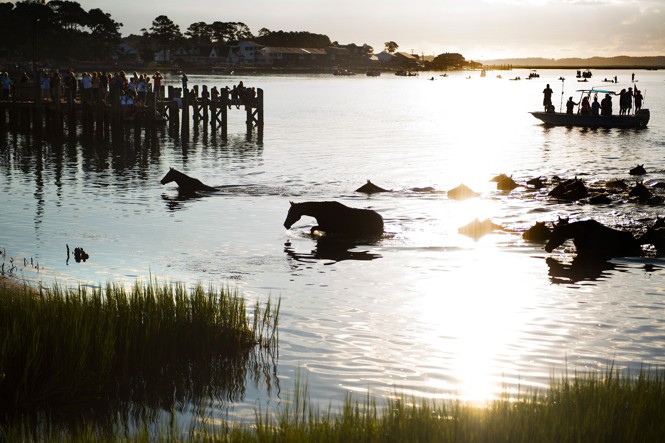
This is an edition of The Atlantic Daily, a newsletter that guides you through the biggest stories of the day, helps you discover new ideas, and recommends the best in culture. Sign up for it here.
It’s rare to see a politician speak hard truths to surly—and even dangerous—fellow citizens, but that’s exactly what Liz Cheney did in her concession speech last night.
But first, here are three new stories from The Atlantic.
‘I Love My Country More.’
Representative Liz Cheney was blown out in her reelection bid last night. She lost the Wyoming Republican primary to Harriet Hageman, which in their deep-red state is tantamount to losing the general election. Hageman was once a Cheney ally and a critic of Donald Trump, but she is now a Trump booster and an election denier. Like so many Republicans, Hageman has decided that the humiliation of bending the knee to Trump is a price worth paying in order to live in Washington, D.C.
Cheney’s defeat was no surprise, but it is an especially bitter pill to swallow for the Never Trump former Republicans (as Charlie Sykes and I discussed in a podcast today) who saw Cheney as the last outpost of the party they once knew. Cheney nodded to the GOP’s free fall in her concession speech. “I believe deeply in the principles and the ideals on which my party was founded,” she told her supporters. “I love its history, and I love what our party has stood for, but I love my country more.”
Notice the use of the past tense there.
The remarkable thing about Cheney’s speech is that it was aimed squarely at the voters. It was certainly not aimed at Trump; Cheney, as well as anyone, knows the pointlessness of addressing Trump in anything like an adult conversation. It wasn’t even really directed at the institutional Republican Party, which is beyond repair at this point. Instead, Cheney grabbed Republican voters by the lapels and told them to snap out of their Trump-induced trance.
“To believe Donald Trump’s election lies,” she said, “you must believe that dozens of federal and state courts who ruled against him, including many judges he appointed, were all corrupted and biased; that all manner of crazy conspiracy theories stole our election from us; and that Donald Trump actually remains president today.”
Nor did she shy away from accusing Trump of fomenting violence. The former president, Cheney charged, “knows that voicing these conspiracies will provoke violence and threats of violence. This happened on January 6, and it’s now happening again. It is entirely foreseeable that the violence will escalate further, yet he and others continue purposely to feed the danger … No patriotic American should excuse these threats or be intimidated by them.”
All of this was said almost as a challenge: Are you really one of the people who can believe this madness? Are you the kind of person who is going to let Trump goad you into violence because of lies?
Likewise, Cheney warned against electing even those in her own party who have already vowed to undermine the rule of law:
Today, as we meet here, there are Republican candidates for governor who deny the outcome of the 2020 election, and who may refuse to certify future elections if they oppose the results. We have candidates for secretary of state who may refuse to report the actual results of the popular vote in future elections. And we have candidates for Congress, including here in Wyoming, who refuse to acknowledge that Joe Biden won the 2020 election and suggest that states decertify their results.
“No American,” she continued, “should support election deniers for any position of genuine responsibility, where their refusal to follow the rule of law will corrupt our future.” She might as well have pointed to the voters and added: And by no one, I mean you.
To make such a speech after a defeat in a populous state such as Ohio or Georgia would be difficult enough, but to do so in Wyoming is particularly courageous. In a bigger place with more cities, a defeated candidate could disappear into the crowd and live a busy life far from his or her critics—something, in a time of increasing political violence, that might seem particularly attractive after losing an election. But Wyoming’s natural grandeur is populated by a relatively tiny number of voters: The entire state has fewer residents than the city of Boston. Everyone knows the Cheney family, and a retreat into peaceful anonymity is not an option.
Not that it matters: Cheney seems completely uninterested in leaving the public square. She is already putting together a political organization of some sort, according to a Politico report this morning, and she is likely to be an even more public warrior against Trumpism now—perhaps even in a GOP presidential primary?—than she could ever be in Congress.
Whatever her future, her willingness to tell the voters that they have a duty, a positive obligation, to defend the American Constitution and the rule of law was a bracing moment in an era where too many politicians merely pander to extremists and coddle the very worst citizens among us. I want to hope that Cheney, for just a moment, broke through the fog that surrounds the mind of Republican voters, but I am pessimistic. Still, she vowed that the end of her congressional career is only the beginning of her fight against Trump, and so Liz Cheney’s story is far from over.
Related:
Today’s News
- CDC Director Rochelle Walensky announced a plan to reorganize the agency after criticizing its response to the coronavirus pandemic.
- Rudy Giuliani arrived at the Fulton County Courthouse in Georgia, where he was called to testify before a special grand jury as part of an investigation into 2020 election interference in the state.
- Ukrainian officials warned that Russia is building missile systems north of Ukraine, in Belarus.
Dispatches
- Galaxy Brain: For a few short hours last week, Charlie Warzel went viral—in the bad way.
- Up for Debate: Conor Friedersdorf explains that antiquated environmental laws are hindering clean energy.
Evening Read

Does DNA Prove the Mythical Origins of These Wild Horses?
By Sarah Zhang
To tell the story of how a purported cow tooth dug up in the Caribbean might corroborate the mythical origin of wild horses off the coast of Maryland and Virginia, let us begin, naturally, with a children’s book, Misty of Chincoteague.
If you know, you know—horse girls, I’m looking at you. For everyone else: This beloved 1947 children’s novel tells the story of Misty the pony, born on the beaches of an uninhabited barrier island. The story is fictional, but the setting is real. A band of wild horses still roams that island today, eating seagrass and largely ignoring tourists who come for selfies with a real-life version of Misty.
More From The Atlantic
- Look at what happens when two galaxies collide.
- Free speech can’t survive as an abstraction.
- Bernard-Henri Lévy on the immortal Salman Rushdie
Culture Break

Read. Goodbye, Vitamin, by Rachel Khong, a novel that expertly balances the silly and the sublime.
Watch. Hang out with Desus & Mero on Showtime. The late-night show will not be returning for a new season—and that’s a loss for TV as a whole.
Listen. Steve Lacy’s “Bad Habit” taps into a wistful, online-inflected vibe.
P.S.
I often marvel at the impenetrability of so many Trump voters when it comes to any news about the former president’s many misdeeds. But such stubbornness should not be surprising: Con artists have for decades understood that the marks would rather lose their money than admit that they were swindled and thus lose their pride as well. (Indeed, some marks have even been known to go so far as to appear in court to defend the people who took them to the cleaners.)
You can read more about this in a delightful book first published in 1940 titled The Big Con, in which a professor named David Maurer recounts the exploits of some of the great con artists of early-20th-century America: Fred and Charley Gondorff, Limehouse Chappie, Hoosier Harry, and many others who ran scams such as “the shut out” and “the cackle-bladder.” The Big Con apparently served as some of the source material for the Oscar-winning 1973 film The Sting (Maurer sued the movie’s studio and writer and settled out of court), and it’s well worth reading both for pleasure and to understand the political moment in which we find ourselves.
— Tom
Isabel Fattal contributed to this newsletter.







